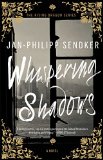Summary | Excerpt | Reviews | Beyond the book | Read-Alikes | Genres & Themes | Author Bio

A True Story of Life and Death in Delhi
by Aman SethiIn a time of global economic strain, this is an unforgettable evocation of persistence in the face of poverty in one of the world’s largest cities.
Like Dave Eggers’s Zeitoun and Alexander Masters’s Stuart, this is a tour de force of narrative reportage.
Mohammed Ashraf studied biology, became a butcher, a tailor, and an electrician’s apprentice; now he is a homeless day laborer in the heart of old Delhi. How did he end up this way? In an astonishing debut, Aman Sethi brings him and his indelible group of friends to life through their adventures and misfortunes in the Old Delhi Railway Station, the harrowing wards of a tuberculosis hospital, an illegal bar made of cardboard and plywood, and into Beggars Court and back onto the streets.
In a time of global economic strain, this is an unforgettable evocation of persistence in the face of poverty in one of the world’s largest cities. Sethi recounts Ashraf’s surprising life story with wit, candor, and verve, and A Free Man becomes a moving story of the many ways a man can be free.
A Free Man is a heartbreaking and troubling portrait of poverty and loss, and also an unvarnished record of one journalist's complicated relationship with his subject. At the end of the book, day laborer, Mohammed Ashraf, remains a sketch rather than a full portrait. He doesn't feel whole but instead feels like a composite of the many migrant laborers who drift in and out of Delhi. But because of Sethi, these solitary and forsaken men will never be forgotten...continued
Full Review
(1026 words)
This review is available to non-members for a limited time. For full access,
become a member today.
(Reviewed by Jo Perry).
A Free Man is journalist Aman Sethi's first book. It grew out of a research project and interviews he conducted in 2005 as research for an article about healthcare for homeless workers. In an August 2012 Publisher's Weekly interview, Sethi explains why he chose to write his book:
When I started as a reporter in 2005, I was surprised by the lack of [coverage] on Delhi's working class. The city had just won the bid to host the 2010 Commonwealth games, and the government had begun a massive program of urban renewal in which hundreds of thousands of homes in slums and working-class neighborhoods were demolished to make way for new infrastructure. I wrote a three-part series on "Working Delhi" to explore the lives - and capture the oral ...
This "beyond the book" feature is available to non-members for a limited time. Join today for full access.

If you liked A Free Man, try these:

by Jan-Philipp Sendker
Published 2016
The first in a suspenseful new trilogy by the internationally bestselling author of The Art of Hearing Heartbeats, this gripping story follows a retired expat journalist in contemporary China who tries to crack a murder case as he battles his own personal demons.

by Katherine Boo
Published 2014
From Pulitzer Prize-winner Katherine Boo, a landmark work of narrative nonfiction that tells the dramatic and sometimes heartbreaking story of families striving toward a better life in one of the twenty-first century's great, unequal cities.
Wisdom is the reward you get for a lifetime of listening when you'd rather have been talking
Click Here to find out who said this, as well as discovering other famous literary quotes!